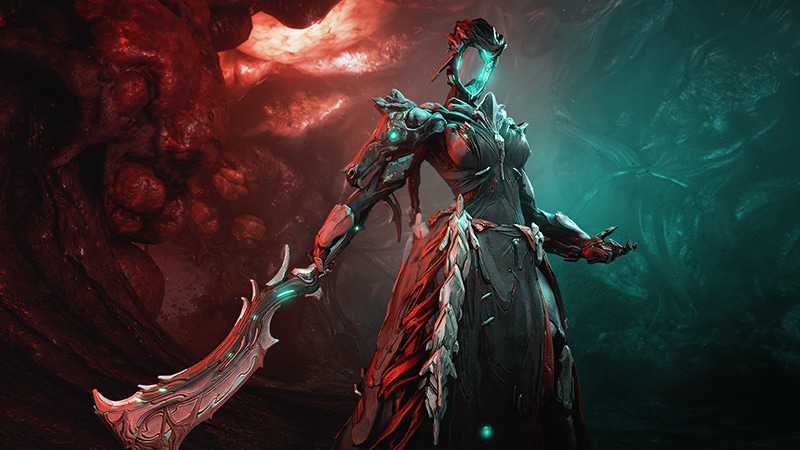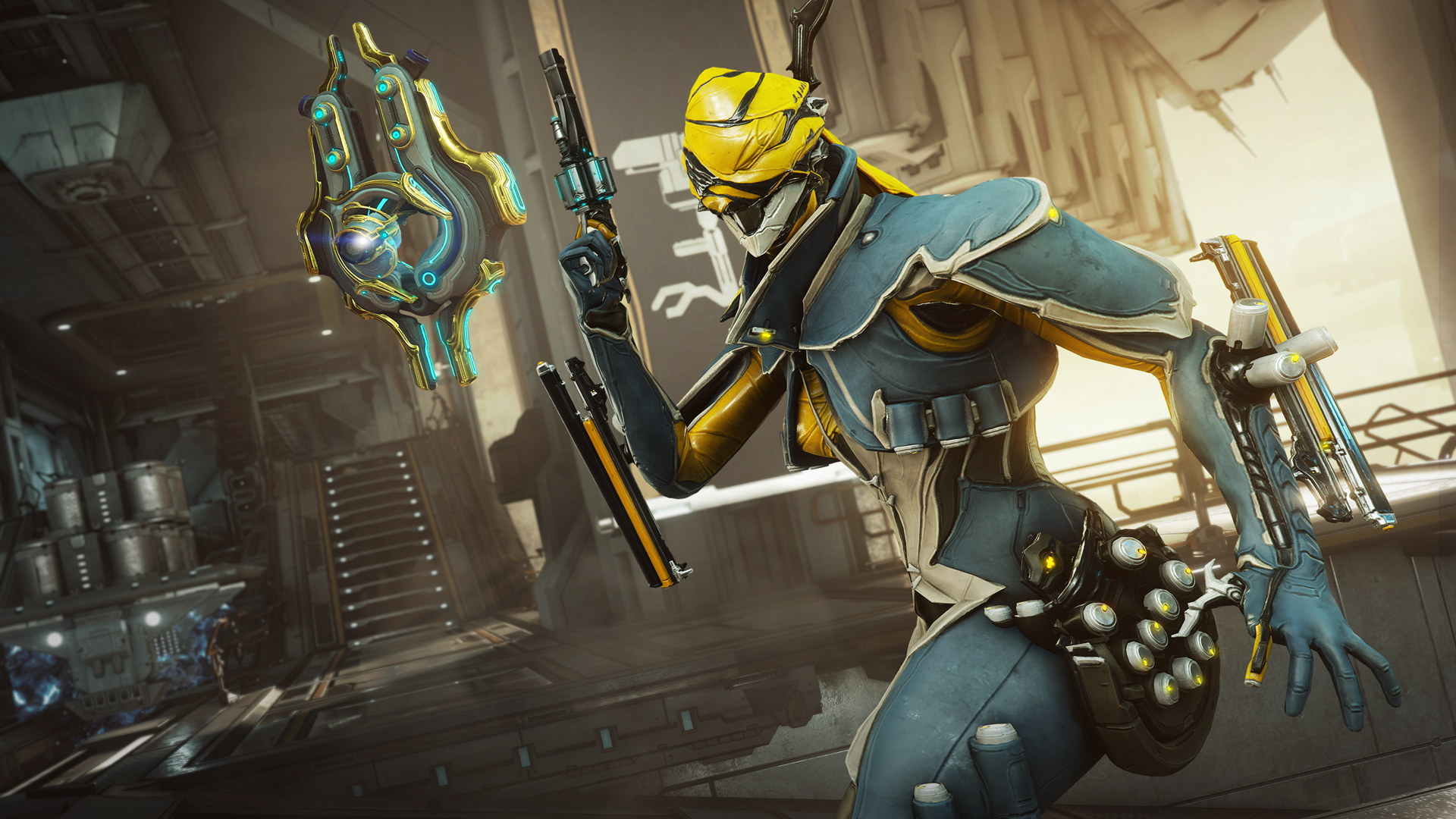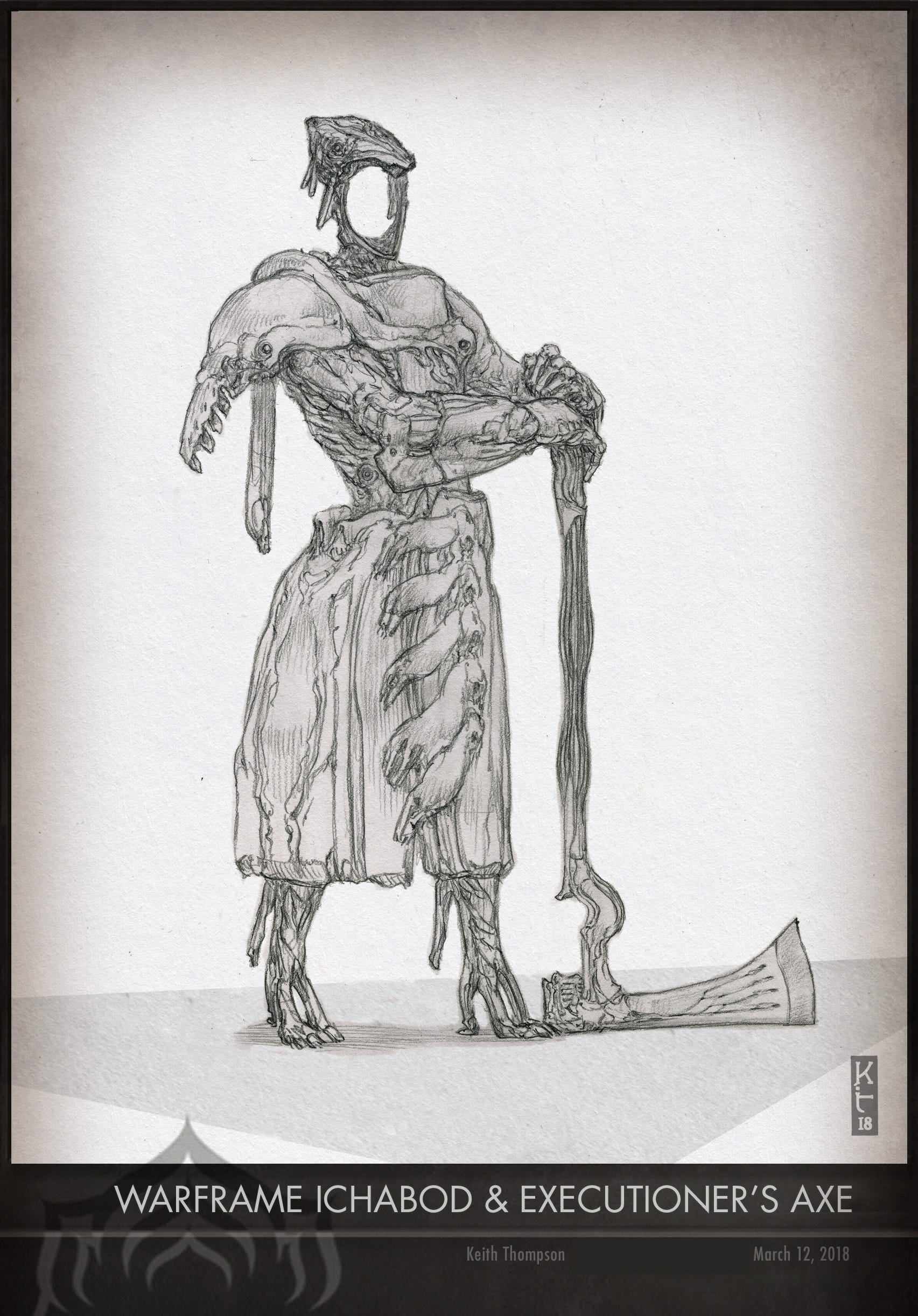Trending
Opinion: How will Project 2025 impact game developers?
The Heritage Foundation's manifesto for the possible next administration could do great harm to many, including large portions of the game development community.

Digital Extremes' Warframe is an online action role-playing game that not many other titles can compare to. This isn't just in terms of its approach to the free-to-play model and consistent content updates, but also in its unique visual style built on the uncanny pairing of a bizarre, far-future sci-fi setting with stylized high-fantasy action of 'space ninjas' fighting across the universe.
With the upcoming release of the Halloween seasonal update Abyss of Dagath on October 18, the developers at Digital Extremes are bringing the game's unique visual style to the realm of horror. Speaking with Digital Extremes principal 3D character artist Michael Skyers before release, he broke down what makes Warframe's unique aesthetic work, how the onboarding of new art talent works, and how the developers are "embracing the weird'' to keep the game feeling fresh.
Celebrating its tenth anniversary this year, Warframe is an evolving game that channels the opulence and otherworldliness of Frank Herbert's Dune, but with the stylized, biomechanical aesthetic of classic Japanese anime like The Guyver. For its developers, Warframe is also a vehicle for experimenting with different genres and tones, coming up with experiences and events—such as open-world maps, ship combat, and choice-driven storylines—that expand the scope of what players can do in the game.
Warframe's unique visual style makes it stand out amongst other action role-playing games, allowing its key developers to experiment and try new ideas that couldn't work in more traditional experiences. In our talk with Skyers, he explained the developer's collaborative creative process, which focuses on abstracting the familiar and extrapolating it within the game's massive setting.
"It's tricky to explain [the creative touchstones] of Warframe. It's always an interesting experience bringing new artists onto the team and explaining what makes Warframe's style work. We tend to lean toward the weird and bizarre, or the strangely beautiful," said Skyers as he elaborated on the creative process at Digital Extremes. "So, if we have to make clothing for characters, we always abstract it like two or three times until you look at it and have to stare real hard to really find the reference we used. We mash so many different styles and influences things together to create something a little bit familiar, but a little bit off-putting—and that's what some of the secret sauce is."

"Even though this is a sci-fi game with robots and other things, I always tell new artists to play with every piece," he continued. "It helps to think of it more as a sculptor creating a piece rather than being like on an assembly line in a factory. So each element should have a unique touch versus something we would just ship out the door."
While Warframe has played with tones and themes, the upcoming Abyss of Dagath update sees Warframe stepping further into the horror genre, focusing on the returning Nights of Naberus Halloween event, which blends playful Halloween-style decor and festivities with the grotesque body-horror-inspired setting of the Cambion Drift on Deimos. This mash-up still feels right at home with what the developers at Digital Extremes seek to accomplish.

Headlining the Abyss of Dagath update is the new playable Frame Dagath (In the world of Warframe, “Frames” are a nickname for the biomechanical characters you control.
Dagath is the 54th Frame to be added to the game, and is tied to the Nights of Naberus event, with their spooky history weaved through the event. Described as a "headless horsewoman" by the developers, Dagath is the first Frame that channels a specific horror tone.
According to Skyers, designing Dagath was a real challenge for the developers. While they were inspired by characters like Pyramid Head from Silent Hill 2, and Washington Irving’s folk story The Legend of Sleepy Hollow, Dagath's defining characteristic is that the Frame has no face, which presented a challenge for the devs how they could showcase character without one.
.png?width=NaN&auto=webp&quality=80&disable=upscale)
"As an artist, it was a real challenge to make a character that had no face. Not only no face, but like a hole in the head, and we still had to make it aesthetically pleasing," said Skyers. "It can work for a 2D drawing, but it's another thing doing 3D. Initially, it looked like a snake unhinging its jaw to eat an egg, and I couldn't unsee that. So it took a few iterations to get it to feel cool. It was really fun, though, because we got to decide on how to make it all work. “
“Then in the gameplay, Dagath is a lot of fun to play as, and she has some really cool casting animations. Just playing as her in the test levels and seeing her cast spells in the air felt really fun. The really cool part about her character is every part of her moves; it's a Frame that's really fun and edgy."
Recently, at TennoCon 2023, Digital Extremes revealed new content planned for Warframe in 2023 and 2024, along with updates for their next major game, Soulframe. For Warframe, in particular, they showcased the new 1999 content update—which sees the online action RPG step into a throwback '90s action game inspired by Metal Gear Solid and The Matrix films.
It's another intriguing turn for Warframe, focusing on a retro twist for the series that takes the franchise on yet another bold swerve to something new and strange. Still, Skyers sees these next steps for Warframe as a way to continue building up the game's defining visual style that has defined the game.
"It's so important and so key for us to keep embracing the weird. As we're transitioning to 1999, where it's set in a more recognizable environment, it's still important for us to make it into something that people haven't seen before. It's definitely a challenge, and sometimes there's like a wish to make a belt into just a belt, but really, we have to challenge ourselves to step three versions away from what a belt is—or what a monster crossed with a TV would look like.”
"It also makes it more personal. The great thing about working [at Digital Extremes] is that everybody puts themselves into the work we all do. Everybody here has a little weirdness in them, which keeps the game feeling fresh. It really is the thing that the people that work on the game, and the studio trust in our abilities to keep the game the way it is."
Read more about:
FeaturesYou May Also Like